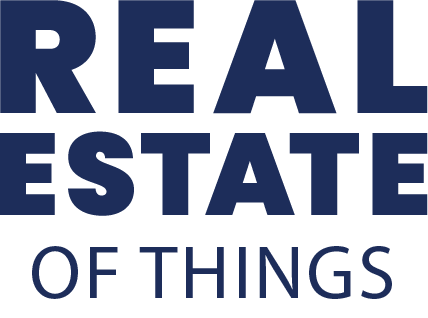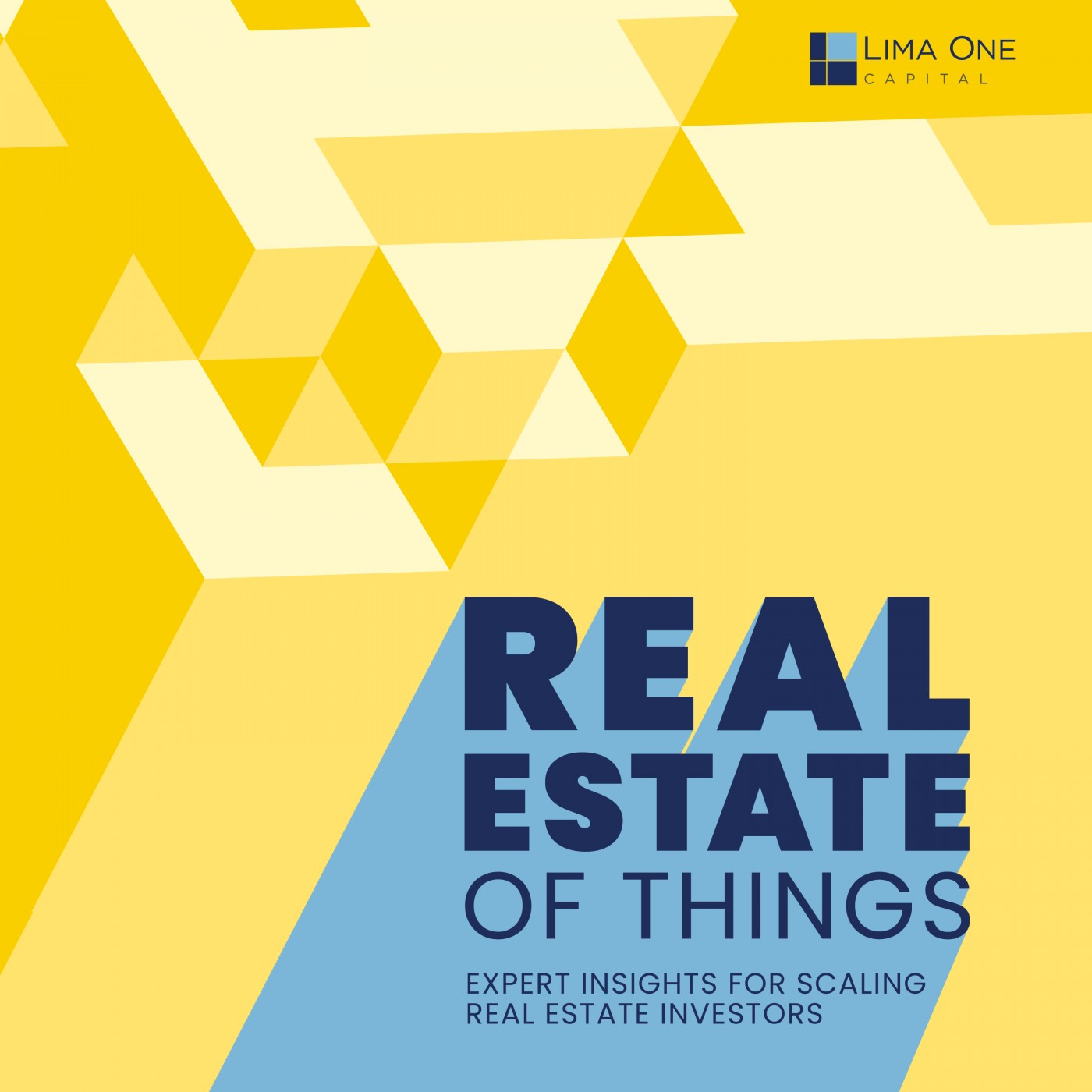Making Real ROI On Your Real Estate Marketing Plan
- 0.5
- 1
- 1.25
- 1.5
- 1.75
- 2
Dalton Elliott: Taylor Owens always good to have a dear colleague on as a guest. You're the chief marketing officer of Limo One Capital, so we show up at the same headquarters five days a week. Thank you so much for joining, my friend.
Taylor Owens: All righty. Happy to be here. Episode 58.
Dalton Elliott: Yeah, 58.
Taylor Owens: This has been a year plus in the works. You've done a phenomenal job, Dalton. Happy to have my debut episode.
Dalton Elliott: Thank you. Thank you. Really appreciate that. And you and the marketing team put so much effort into this. I see myself as a very much an ancillary player here and you and the team do all the hard work. I just get on here and chat for 20, 30 minutes at a time. So definitely appreciate everything you all do. As you can see, I'm not at headquarters, I'm not at my house. I am all the way on the other side of the country in Vegas. It's day number seven in Vegas. I still have a pulse. I'm still living, still breathing. You just flew back from Vegas a few days ago. We were at the NACLB Conference. We co- hosted that conference. It's our second year co- hosting it, the National Alliance of Commercial Loan Brokers. And you spoke on a panel while we were there, but before we dive into marketing as a broker. How do you enjoy the conference?
Taylor Owens: Conference was great. So this was my second NACLB. They said they had 1200 individuals registered for the conference, 900 brokers, a lot of activity, lot of engagement. Debuted a new booth at the conference. Unique opportunity or environment right now in having you at the conference. That being a huge component of our marketing strategy here at Lima One, and then also recording the podcast and we'll talk about content here in a bit, but the content or the conference was great. A lot of activity, a lot of new brokers looking to enter the industry. A lot of brokers that have been in the industry for a long time taking their quote apprentice under their wing, so there was a large appetite for financing our products, residential real estate. There's just a lot of buzz and activity there and a lot of these brokers just starting, they're really interested in marketing, whether they do it themselves, look to hire an intern or look at third party resources in terms of an agency so a lot of buzz at the conference overall.
Dalton Elliott: Yeah, I was talking with another colleague tail end of last week. You just asked what the vibe was at the conference, what the feel was. We're in an environment where rates are going up, inflation's crazy, home prices are starting to flatten out or decline a little bit depending on the market. And one thing that could have a little surprising to me is just how optimistic everybody in the room was about where the space is heading. Knowing that there's a big feel that, " Look, this isn't an oh seven or oh eight, this is... You're going to count this in months, not years." Which is really good to feel that vibe. It's all reading the tea leaves and somebody said that the two people who can be wrong and keep their jobs are weathermen and economists so who knows what's going to happen. But the optimism was great. How did you come away with the same vibe?
Taylor Owens: Yeah, I think despite a changing environment, a dynamic market, there's a lot of folks still entering the industry. There are a lot of folks coming to the website, shopping around these communities online for real estate investors and brokers or continue to increase. Over the last few months, I've been to four different conferences that all emphasize marketing. So where deal flow might not be as good as it was last year, less at bats in the space, now is a really, really good time to invest in marketing, figure out who you are as a company and as a brand and what your niche is. And I went to the housing wire conference, I went to a customer experience in Financial Services Conference, NACLB had a half day marketing summit, housing wire, like I said, at a full day marketing summit. So now is the best time really to again, build your brand, brand equity in the space, get yourself out there, figure out who you are, what your value prop is, especially for broker, where it's understanding who your partners are and then what service that you'll be providing to your customers. So again, now more than ever, marketing and customer experience is a huge emphasis for brands and folks in the space, but also those looking to get their foot in the industry.
Dalton Elliott: Yeah. I really want to talk about just kind of tools that brokers can leverage specifically from a marketing standpoint. But before we dive into that, you jogged my mind thinking about, " Okay. We work with tons of brokers, thousands of brokers over the course of our broker program at Lemo One Capital. And I've worked on the broker side, the table funding side, the whole own purchase side." And you see that in a lot of cases there's a pretty hammered out pathway of growth. So you see brokers usually start off as one person shops and then you'll add some processors, some other brokers to the mix. But specifically, I think this crosses not only the broker world, but just marketing in general. But real quick, as you're looking to build out a marketing team, which you have came aboard Lemo One, you built out a stellar team there, what are the first couple of marketing hires look like? What should they look like? What type of roles do you feel if you have a small business but you're looking to bolster up the marketing world?
Taylor Owens: Yeah, good question so I mean, we talked about this on the panel NACLB, but the typical broker company size is, I mean, it's oftentimes just a one man or one woman show up to maybe three to five individuals, processors, marketers, sales individuals. So it's not necessarily the people first that you want to bring on board. I would say it's more so the tools and the tools are really going to help you automate a lot of your communications. They're going to keep you organized. And once you build that foundation of tools that automate a lot of your processes, communicate with your prospects and your leads and your customers behind the scenes, then you can look to make those hires. And the first tool that I would recommend really for any company a large or small, is get a CRM, Customer Relationship Management platform. And what that does is a lot of companies, even well established companies use a CRM like a glorified Excel spreadsheet, which is not best practices. This is really something that you should leverage to collect your lead information, put data around those. For example, the no brainers are first name, last name, email, phone number, and then where did you source this lead so you can understand, all right, I'm going to continue to go to home builders associations, I'm going to continue to invest in Facebook because this is where the best quality leads are coming from. You can also, I mean if you're a broker and you're working with multiple lenders, you can basically marry prospects or existing customers to those lenders so that when you get a new deal, you're, there's that seamless handoff to I here are the products I'm going to pitch this person. The CRM as well is basically you can bolt on a whole bunch of different marketing tools to this. So we used something called HubSpot. We brought this on a year ago. It's really transformed our business from a CRM and marketing automation standpoint. And we've used this to turn on email marketing so we can pull all of those leads from Facebook and send them a certain message. We can pull all of those leads that are interested in a certain product and tailor our marketing message to that. So we started the CRN. Another thing too is it allows you to do marketing automation. So you can create email templates triggers that are working behind the scenes and will send out automatically and you can tailor them so it looks like it's coming from a real person, so that as you're making outbound phone calls and your emails are going out, they're hopefully generating inbound. And it's the two of those that are really, really going to help you accelerate your business before making a hire. Now, once you've brought on a CRM and you've built that foundation, really your first hire should be a part- time resource to help you manage your CRM, put leads in there, make sure the data integrity is good, there's no duplicates, and then really managing your email. Email is really going to be your best bang for your buck in terms of one to one return on investment there. So that's where I would start.
Dalton Elliott: You hit on a lot of pieces there, and I know even the natural progression of a CRM usually starts with Excel spreadsheets and then it goes up from there. When I started building our broker program, it was an Excel spreadsheet, and then we've gone through a couple iterations of snails force. But yeah, the data integrity piece, that's such a critical part because a CRM isn't, like you said, it's not about just housing data, it's really about having solid data that is then actionable. You can make decisions, you can make moves, whether it's sales marketing from an executive level, you're able to really turn that into Powerhouse and HubSpot, which you can bolt on to just drive all the more, so the more clean, accurate data you can collect and put in the CRM, the better, the more actionable it's going to be.
Taylor Owens: Yeah. Again, going back to what CRM stands for Customer Relationship Management Platform, this is something that you should be leveraging really to manage your relationships. Who are these people? Where do they come from? Where should I send their deals? So that will not only help you create a better customer experience for your prospects and your current customers, but it'll also allow you over the course of 90 days to a year to understand what your best marketing tactics were and to pivot the money that you do have to accelerate your marketing into those channels. Another tool that I want to talk about is LinkedIn Sales Navigator is great for prospecting, right? It's a bolt on to LinkedIn, right? LinkedIn is a social network, but it's also a search engine. And LinkedIn Sales Navigator is something that you pay for and it allows you to get very, very granular with your search query, right? So I'm looking for fix and flip investors or brokers that operate in Riverside, California. And you can search by industry, you can even search what kind of content that they're interested in to create lists and then message those individuals. You can also look for realtors or title agents or general contractors within your market to not only go after your customer, but to go after those that could refer customers to you. And that's something that back to your CRM, right? If you pull a handful of leads through LinkedIn Sales Navigator and you put those into your CRM and the lead source was LinkedIn Sales Navigator, and over the course of the year you're generating deals and you're generating revenue to your business, then you know what? You have the data to be able to say, LinkedIn Sales Navigator was a great investment. I'm going to continue to make that an investment where other leads source did not have any return, so therefore I'm not going to waste any money there.
Dalton Elliott: Marketing can get really, really, really expensive and if you're not careful, you can find yourself shoveling wheel barrels of car or moving wheel barrels of cash in one direction and then just setting them on fire and not getting much ROI out of it. And I think you and I know this all too well, that you have to be able to attach a customer transaction to a marketing source. And for us in the lending world, that's conferences, it's web marketing, email blasts in person, in market events that we do. And if you're just spending money on these things and you're not really tracking the ROI, then it can be feel good to fly around the country. It can be feel good to throw these in market events, but if you're not attaching a source to the dollar spent, you can really find yourself in treacherous waters.
Taylor Owens: And it's not necessarily to build the case to cut certain marketing tactics, it's really call out where you're potentially underperforming. So you're paying a couple thousand dollars a year, let's say, to join your local Home Builders Association to tap into a network of builders. And maybe you're breaking even where the opportunity there should be. You should be 10 xing your revenue. Then it gives you the power and the data to be able to say, " All right, let's approach the Home Builders Association a little differently." Maybe we do some sort of sponsorship once a quarter as opposed to once a year and let's spend a little bit more money on that sponsorship. Or maybe the Riverside HBA is great at building relationships, but the Bakersfield HBA is one that we don't want to continue to invest in. And at Lima One with, we have 16 different lead sources that we play around with. And as a marketing leader now, been here at Lima One for over a year, first order of business was get the data right, because without having the data right, the data integrity, you can't make decisions. And this isn't just for larger companies to put into practice. I mean, if you are a small broker team of one to five, having this data will really just allow you to put together a playbook for next year and not make assumptions. And it's very timely. Now in Q4, this is where we turn, we look at our data and say, " All right, where should we spend our money? Where should we pull back or where should we optimize?" So HubSpot is cheap for, you can get a starter platform for a starter, the starter package for HubSpot for just a couple thousand dollars a year. And again, this will really accelerate your business, not from just a data governance piece, but will allow you to bolt in landing pages, which is just a form of your website that allows people to put in their information capture emails to email marketing.
Dalton Elliott: That is shockingly inexpensive. It's like a couple thousand bucks a year. It could sound like a lot, but it's only a couple hundred bucks a month. Again, if you can attach, can close a couple loans off of it, close, really just a couple of loans in our space based on the loan average and attach them to activity through HubSpot, you're in the black on it.
Taylor Owens: Right. And that's why I say, I mean, that's where you start in terms of getting your CRM, getting your email in place, and then hiring somebody part- time, whether an agency for five hours a week or an intern, or again, somebody part- time. This is really going to be your one to one attribution from Return On Investment standpoint where a lot of content and social media is more of a brand play. And if you're spending$ 15 an hour on an intern to come run your social media and you're just starting out, you're probably not going to see the fruits of that labor or that investment for a year down the line. That's a slow burn. But if you become obsessed with acquiring emails, putting them into your CRM, having the email marketing in place, that working behind the scenes, what's going to drive your inbound calls, deal flow, just all around inquiry. So again, that's where you're going to see the return on investment.
Dalton Elliott: Got it. So without giving away any trade secrets or any secret plans we have back at HQ, what are some of the high level things you're focusing on next year from a marketing standpoint?
Taylor Owens: Just diversification. We spend a good amount of time for each of our products, each of our sales channels, putting all the pieces on the board or on the table that says, " All right, this is where we can spend money either to drive leads, retain current customers, or build our brand presence in the industry." And based upon the budget that the financial folks at HQ give us, we figure out what the sweet spot is in terms of cost per acquisition. So what we feel like is an acceptable cost to acquire a new customer, figuring that they're going to probably drive three to five new deals throughout the year, and we put that budget across about 20 different lead gen or just brand building marketing channels. So that's something that were Q4 came up really quickly, but again, where can you diversify your brand? How can you be seen everywhere? And this is what brokers should be doing in their markets for whatever reason I picked Riverside. But if it's your HPA, real estate investment association, is it different realtor groups? Is it local Facebook groups? Is it billboard, right? You want to be seen everywhere. And to go back to the first point that I made is if deal volume is slowed down, people are being a bit more conservative in today's landscape, it's focus on brand, and brand is being seen everywhere and diversifying your message. So we'll be figuring out what the sweet spot is in terms of lead gen versus brand. Typically, you want 80%, 70% of your budget to be around generating new leads and about 20 to 30% of your budget being put into building your brand. And that might change going into 2023, what that percentage looks like might be a little bit more of a brand investment, content partnerships, sponsorships, video, billboards, conferences so there's no shortage of ways that you could be creative in marketing and it's applicable to large enterprises in small shops.
Dalton Elliott: Yeah, finance team Blitz five x Taylor's marketing budget for next year. More money in the marketing budget equals more leads.
Taylor Owens: Well, here's the deal, Dalton ROI, right? First order of business was coming into Lima, is how do we prove ROI specific to individual marketing strategies? Because if you say, " Hey, the investing in Google gave us a eight x return, let's continue to pump money into Google."
Dalton Elliott: Yeah, good point. So Taylor, I know you have way more marketing tips, tricks, insight in that no going to yours for mortgage brokers and beyond, so come back next week. Let's do another episode, my friend.
Taylor Owens: Yes, sir. Happy to do so.
Dalton Elliott: Beautiful. Taylor, thank you so much for joining. Always a pleasure. And I always learned something when I chat with you, which is for me, that's the goal of this podcast. I hope if I'm learning that folks who are listening or learning so thank you very much, my friend.
Taylor Owens: Thanks, Dalton.
Dalton Elliott: Thanks everybody for listening. Tune in next Tuesday. We'll have Taylor back on, get some more marketing tips and tricks for you. Take care.
DESCRIPTION
Creating a sound, highly valuable marketing plan is just as important as identifying valuable real estate properties for your ROI.
In today’s episode, Taylor Owens, Chief Marketing Officer at Lima One Capital, shares his valuable strategy in establishing a marketing strategy from gathering emails to phone numbers to create the tools you’ll need to grow your company even before you start hiring additional team members.
Join as we discuss:
- Investing in Marketing and Customer Experience in today’s economy
- Diversifying your marketing budget
- Investing in your company’s tools like CRM before hiring



